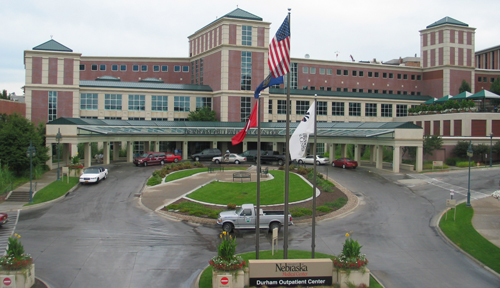An American providing medical assistance in the Democratic Republic of Congo recently experienced a possible exposure to the Ebola virus and was brought to Omaha on Dec. 29 for monitoring. This person has no Ebola symptoms but will be monitored closely. Should any symptoms develop, the Nebraska Biocontainment Unit would be activated and the person admitted.
“This person may have been exposed to the virus but is not ill and is not contagious,” said Ted Cieslak, M.D., infectious diseases specialist with Nebraska Medicine and associate professor of epidemiology in the University of Nebraska Medical Center College of Public Health. “Should any symptoms develop, the Nebraska Medicine/UNMC team is among the most qualified in the world to deal with them.”
The individual was transported privately to the medical center. Working with federal, state and county public health officials, they will be monitored in a secure area not accessible by the public or any patients. Monitoring could last up to two weeks.
While this person isn’t officially a patient, we will be honoring their request for privacy while they are being monitored here. Unless the need arises, we will not be providing updates in the status of this individual during the monitoring period. However, if it becomes necessary for this person to be transferred to the Nebraska Biocontainment Unit, regular updates should be expected.
Nebraska Medicine treated three patients with Ebola in 2014. In 2015, several others were monitored after exposures, none of whom developed the disease. Nebraska Medical Center is home to one of the nation’s few dedicated biocontainment units.
In the years since the 2014 Ebola outbreak in Africa, infectious disease experts from Nebraska Medicine and its academic partner, the University of Nebraska Medical Center (UNMC), have taken a leading role in training other health care workers across the U.S. and around the world in dealing with infectious diseases such as Ebola.
